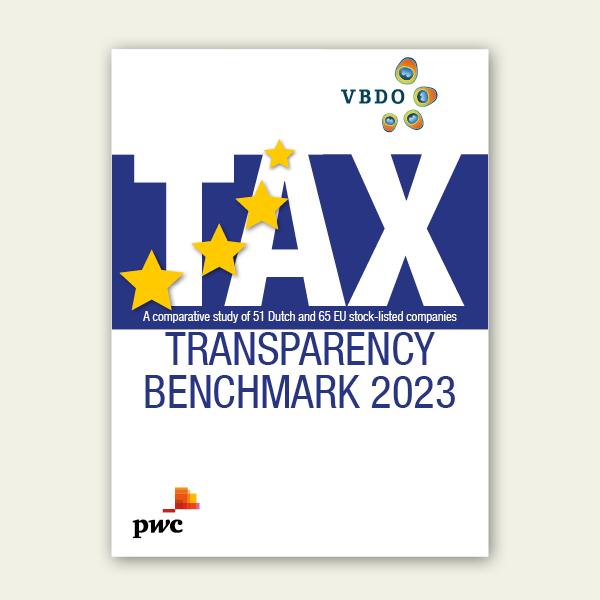- The Association of Investors for Sustainable Development (VBDO) will present the latest, European edition of the Tax Transparency Benchmark on 21 November 2023;
- Philips proves most transparent about tax payments among Dutch companies, Repsol scores highest among European companies (Dutch parties not included);
- Large difference between tax transparency scores within EU countries;
- Only about a quarter of the surveyed companies involve external stakeholders in the tax process.
Philips scores highest out of a total of 116 participating companies (51 from the Netherlands and 65 from the EU) when it comes to European tax transparency. This is according to the recently published EU Tax Transparency Benchmark of the Association of Investors for Sustainable Development (VBDO).
Philips scored the absolute possible number of 40 points and can therefore call itself the leader. NN Group was previously a winner among Dutch companies four years in a row but scored 39 points this year. Spain’s Repsol finished with 38 points, again earning itself the title of the most transparent European company when Dutch parties are left out.
Tax policy increasingly higher on agenda
Angélique Laskewitz, director of VBDO: ‘Companies have a responsibility towards society and the environment in which they operate. Tax payments are an important part of that. We have therefore been advocating tax transparency for over 12 years.’
VBDO is by now not alone in this: in recent events, among other things, the VNO-NCW Tax Governance Code was created. EU member states also previously implemented the EU Public Country-by-Country Reporting Directive and there is a global commitment to a minimum of 15% effective tax payment. Laskewitz: ‘Our long-standing commitment to this issue has certainly made a positive contribution to current developments.’
The Netherlands scores highest on European average
Tax transparency is becoming more and more common in our country. This is also reflected in the average percentage of the total number of points to be achieved, which is 56% for Dutch companies against an average of 41% of their European peers. Italian (55%) and Spanish (53%) companies also perform well, whereas Swedish (24%) and Belgian companies (24%) still lag behind.
Besides the difference by country, significant differences can also be seen by sector. For instance, the energy and financial sectors score relatively high and the pharmaceutical industry in particular still has a long way to go.
PwC, which assisted in conducting the Tax Transparency Benchmark for the ninth consecutive year, sees that companies increasingly see taxes as an integral part of their sustainability strategy. Brenda Mooijekind, vice president of PwC’s tax advisory practice: ‘With the introduction of the Corporate Sustainability Reporting Directive (CSRD) and the tax reporting requirements this may entail, there is an expectation that companies will make further progress in this area in the coming years.’
Large mutual differences
Internally, companies seem well aware of the importance of a sound tax policy. Nine out of ten companies have their own tax policy or strategy. In almost half of the companies, these are still approved by the management itself, stating how often they are looked at.
However, when it comes to involving external parties, there is still much ground to be gained. Only one in three Dutch companies describes the process for and outcomes of collecting and considering stakeholders’ views and concerns. For Europe, it is only slightly more than one in five.

